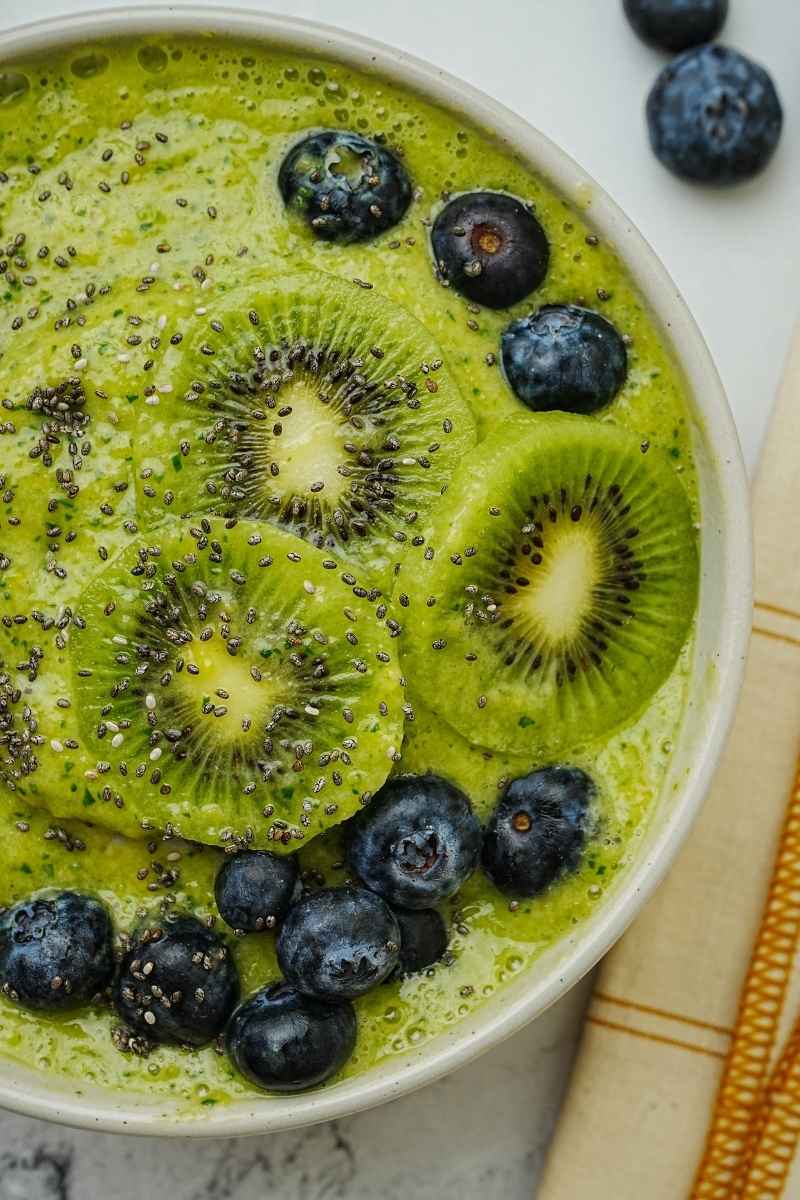
The Most Popular Fruit (For Good Reason)
Mango is the most widely consumed and beloved fruit in the world. This is mainly due to its sweet taste and silky texture, but lucky for us, mango also comes packed with vitamins, minerals, and phytonutrients. Mangos contain bioactive compounds such as phenolic acids, polyphenols, and carotenoids that are powerful antioxidants and help to reduce risk of cancer, cardiovascular disease, and diabetes.
Mango is delicious on its own, but also when added to smoothies like this one, or even in savory dishes. You really can’t go wrong!
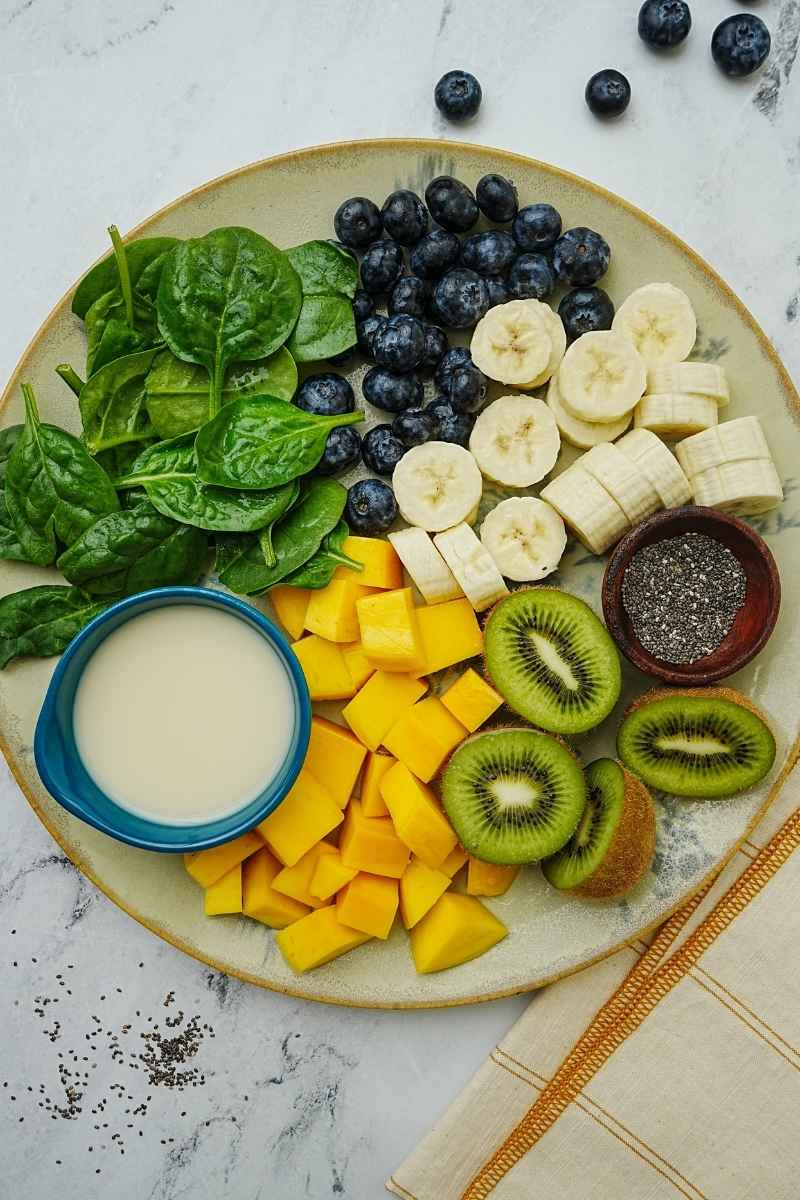
One Kiwi Can Give You A Day’s Worth of Vitamin C
Kiwis are a tangy green or gold fruit native to southwest China, but today most are commercially grown in New Zealand. Kiwis are exceptionally high in Vitamin C, with the sungold variety packing in 3x the amount found in oranges! They are also good sources of Vitamin E, folate, potassium, and fiber.
Although it doesn’t get as much press as blueberries or other popular fruits, kiwis bring a lot of health benefits for your body. Among other things, they are known to support digestive health, to help lower blood sugar as the body is digesting the meal, and to lower blood pressure.
Thankfully, we don’t have to twist your arm to get you to eat them. Kiwis have a sweet and tangy flavor that people love, and they’re a fun addition to a meal like this for their vibrant color and novelty too.
The Blueberry Hype is Real
Unless you live under a rock, you already know that blueberries are really good for you. They have been dubbed a “superfood” due to having an abundance of polyphenols, a type of antioxidant that protects the body from damage due to inflammation and stress. The effects of these polyphenols are wide-ranging, covering everything from protecting brain health to regulating blood sugar levels.
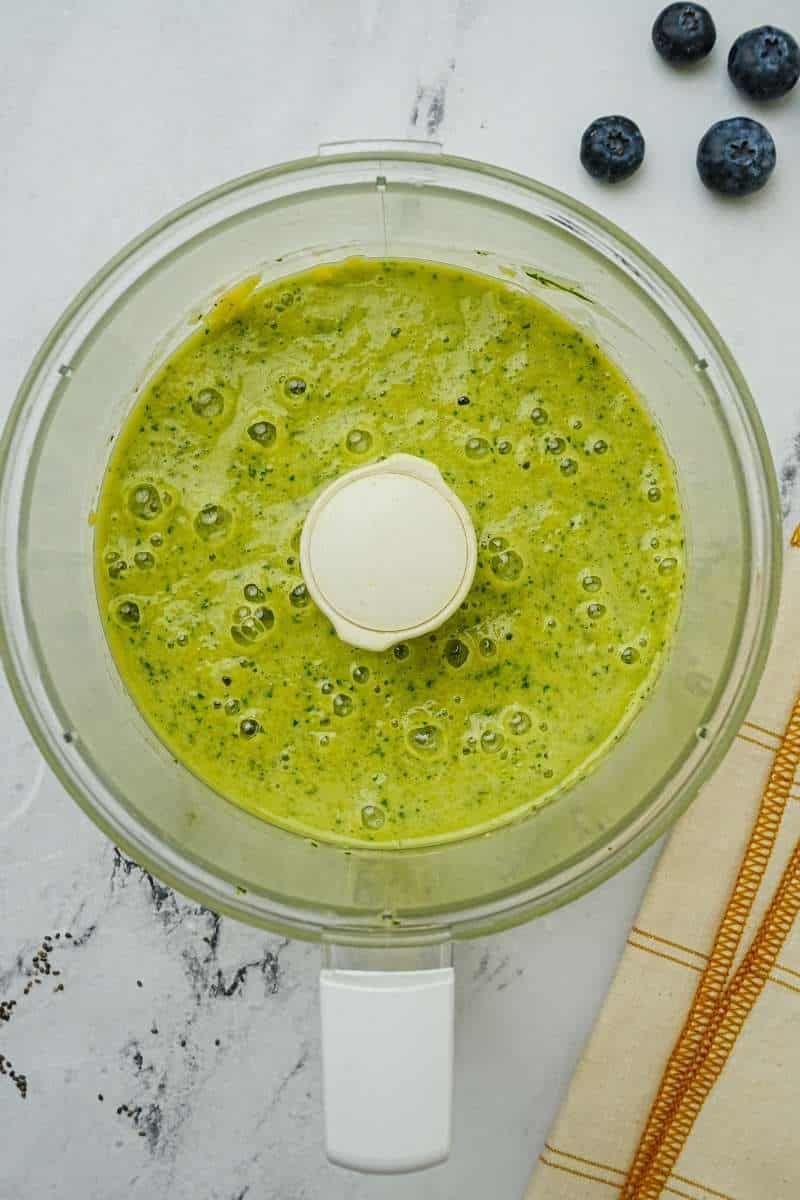
You can find blueberries at any grocery store, usually with the option of buying them fresh or frozen. Stock up and add them to your meals often! In the meantime, they’ll be the perfect topping for this smoothie bowl.
Even In a Smoothie, Eat Your Greens!
Like all leafy greens, spinach is low in calories, high in fiber, and loaded with vitamins and minerals. Spinach is a particularly good source of nitrates, which get a lot of the credit for spinach’s ability to lower blood pressure, and cholesterol, and improve insulin resistance.
Compared to other dark leafy greens like kale, chard, or collards, spinach has a milder flavor that is less bitter. That’s why it’s often the preferred choice for smoothies like this one!
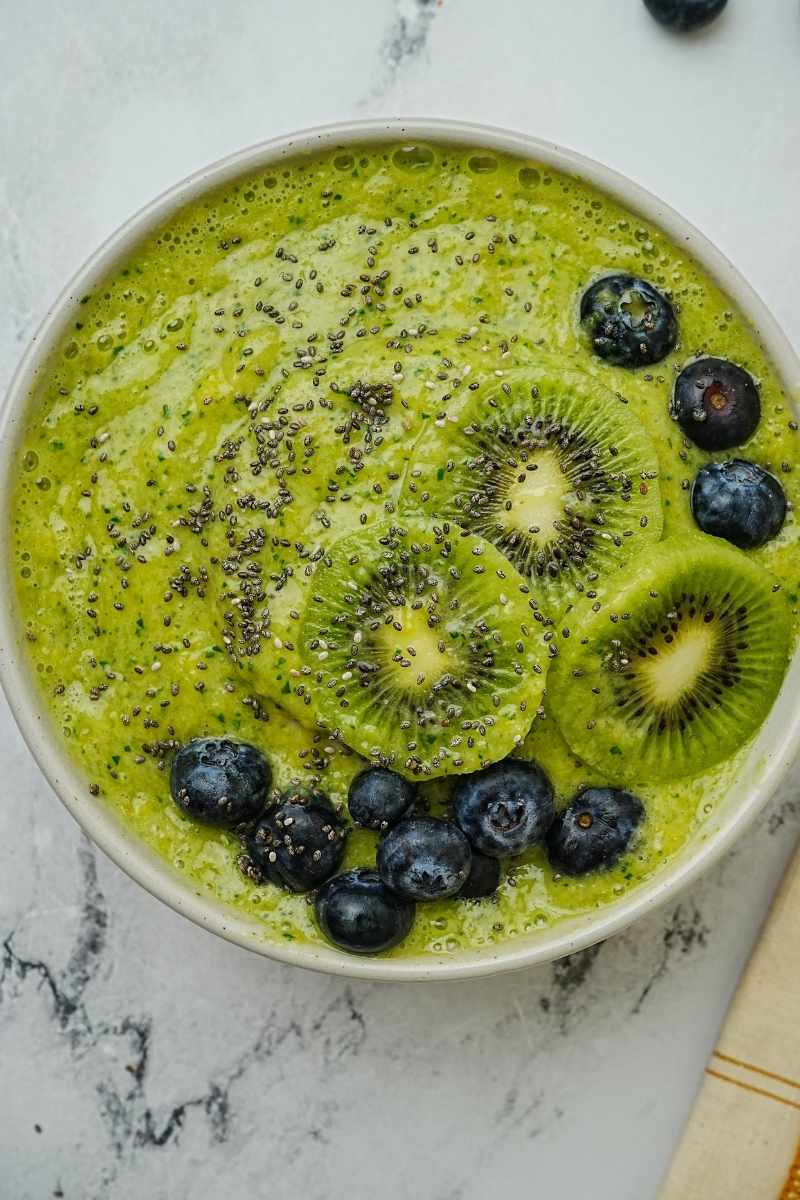
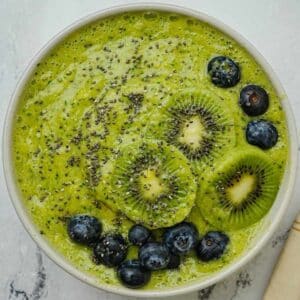
Mango Green Smoothie Bowl
Ingredients
- 1 cup (150g) Frozen Banana, sliced - About 1 large banana, sliced before freezing
- 1 cup (165g) Frozen Mango - About 1/2 mango, or 1/4 of a 600g frozen mango bag
- 1 cup (30g) Baby Spinach - About 1/4 of a standard 10-oz container
- 1/2 cup (120g) Unsweetened Almond Milk - Available in 32-oz cartons
- 1/2 cup (90g) Kiwi, peeled and sliced - About 2 medium kiwis
- 1 cup (148g) Blueberries, fresh or frozen - About 1/2 of a 10-oz frozen bag
- 1 tbsp (10g) Chia Seeds, ground - Available in 10-oz bags
Instructions
- Place the banana, frozen mango, baby spinach, and almond milk into a blender. Blend well until smooth.
- Pour into a bowl and top with kiwi, blueberries, chia seeds and any other favorite toppings. Enjoy!
Notes
- Frozen Banana: At your local grocery store, frozen bananas can be found in the frozen fruit section. If you want to freeze your own, wait until bananas ripen and develop spotson the peel, then remove the peel, cut into 2 inch sections, place into a freezer-safe container.
- No Frozen Mango: Use frozen pineapple, frozen pears, or frozen peaches in place of mango for this recipe.
- Almond Milk: If you don't have almond milk, any unsweetened plant-based milk will work.

